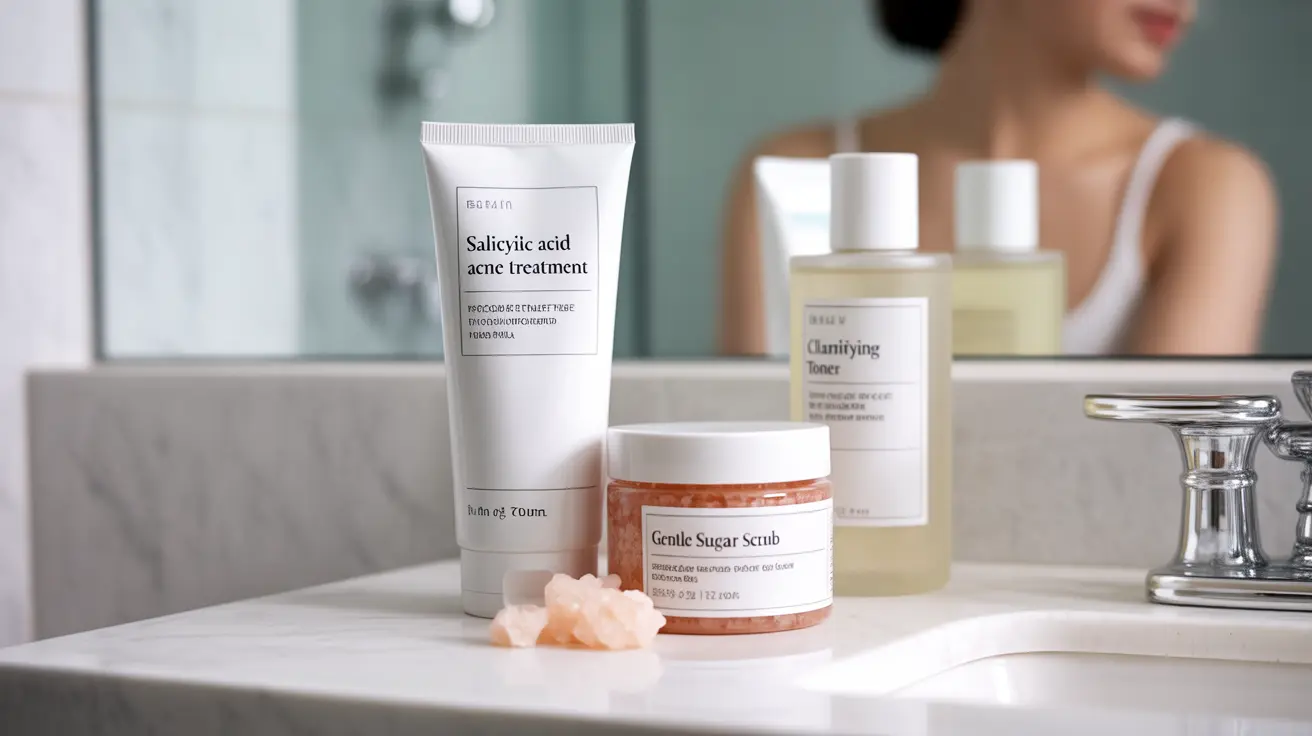If you're dealing with acne, you've probably wondered whether exfoliation could be the missing piece in your skincare routine. Understanding how exfoliation affects acne-prone skin is crucial for achieving clearer, healthier-looking skin while avoiding potential irritation or breakouts.
This comprehensive guide will explore the relationship between exfoliation and acne, helping you understand when and how to incorporate this important skincare step into your routine safely and effectively.
Understanding Exfoliation and Its Effects on Acne-Prone Skin
Exfoliation removes dead skin cells from the surface of your skin, which can help prevent pore blockages that lead to acne. When done correctly, exfoliation can improve skin texture, reduce the appearance of acne scars, and help other skincare products penetrate more effectively.
However, the key to success lies in choosing the right type of exfoliation for your skin type and using it appropriately. Over-exfoliation can damage your skin's protective barrier and potentially worsen acne.
Types of Exfoliation for Acne-Prone Skin
Chemical Exfoliants
Chemical exfoliants use acids or enzymes to dissolve dead skin cells and unclog pores. Common ingredients include:
- Salicylic acid (BHA): Particularly effective for acne-prone skin
- Alpha-hydroxy acids (AHAs): Including glycolic and lactic acid
- Enzymes: Gentler options derived from fruits like papaya and pineapple
Physical Exfoliants
Physical exfoliants work by manually removing dead skin cells through gentle scrubbing. For acne-prone skin, choose gentle options such as:
- Soft washcloths
- Gentle facial brushes
- Rice powder-based scrubs
- Jojoba bead products
Best Practices for Exfoliating Acne-Prone Skin
To maximize benefits and minimize risks, follow these essential guidelines:
- Start slowly: Begin with once-weekly exfoliation
- Be gentle: Never scrub aggressively
- Choose appropriate products for your skin type
- Always moisturize after exfoliating
- Use sunscreen during the day, as exfoliation can increase sun sensitivity
Signs You're Over-Exfoliating
Watch for these warning signs that indicate you need to reduce exfoliation:
- Increased redness and irritation
- Tight, shiny skin
- Enhanced sensitivity
- New breakouts or inflammation
- Burning or stinging sensations
Frequently Asked Questions
Does exfoliating really help with reducing acne and how often should I do it?
Yes, exfoliating can help reduce acne by removing dead skin cells that can clog pores and cause breakouts. For most people with acne-prone skin, exfoliating 1-2 times per week is ideal. However, those with sensitive skin might need to limit exfoliation to once every two weeks.
What are the best exfoliating products for acne-prone skin, and how do they work?
The best exfoliating products for acne-prone skin typically contain salicylic acid or gentle AHAs. These ingredients work by breaking down dead skin cells and unclogging pores. Look for products that combine exfoliating ingredients with soothing components like aloe vera or niacinamide to minimize irritation.
How do I choose between chemical and physical exfoliants for my acne-prone skin?
Chemical exfoliants are often better for acne-prone skin as they're less likely to cause irritation when used correctly. Choose chemical exfoliants if you have active breakouts or sensitive skin. Physical exfoliants can be suitable for those with more resilient skin or if you prefer a scrubbing sensation, but ensure they're very gentle.
Can over-exfoliating worsen acne, and what are the signs of over-exfoliation?
Yes, over-exfoliating can definitely worsen acne by damaging the skin barrier and triggering inflammation. Signs include increased sensitivity, redness, tight or shiny skin, and new breakouts. If you notice these symptoms, stop exfoliating immediately and focus on gentle, barrier-repairing products.
How should I exfoliate my skin if I'm using other acne treatments like retinoids or benzoyl peroxide?
When using active acne treatments, reduce exfoliation frequency and avoid using exfoliants on the same days as your treatments. Space out your products, using exfoliants in the morning and acne treatments at night, or alternating days. Always listen to your skin and reduce frequency if you experience any irritation.




